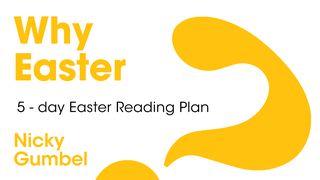30 Days in the PsalmsSýnishorn

Day #26: Psalm 113
Psalm 113 is pure praise, a prayer that lifts up the Lord without making any petition at all. Perhaps this is a reminder that there are times when we are called to lay aside “we” and “I” in our praying, to focus exclusively on rejoicing in who God is. This praise session is communal, rather than individual, calling “the servants of the Lord” to lift up the song together (v. 1).
Praising and blessing the Lord is an unceasing activity. It’s eternal—“from this time on and forevermore” (v. 2). It’s an all-day assignment—“from the rising of the sun to its setting” (v. 3). The central underlying reason that motivates this ceaseless praise is the reality of God’s incomparable greatness: “The Lord is high above all nations, and his glory above the heavens” (v. 4).
Immediately, the poet picks up the declaration of verse four and turns it into a rhetorical question: “Who is like the Lord our God, who is seated on high, who looks far down on the heavens and the earth?” (vv. 5–6). This question anticipates the same answer that is given repeatedly throughout the Old Testament: “No one! There is no one like the Lord!” We can imagine the worship leader singing the question and the congregation responding with a resounding “no one!”
Perhaps the most interesting part of this psalm is what happens next, as the psalmist highlights one particular aspect of God’s identity that prompts this prayer of praise. What is the reason for lifting up God’s incomparability, the thing that sets him apart from all other gods? It’s not his power, his sovereignty, or his role as the Creator (all things that are lifted up repeatedly in the Psalms as reasons to praise the Lord). No, here in Psalm 113, the incomparable greatness of the Lord is seen in his goodness and lavish generosity to the most vulnerable—the poor, the needy, the barren woman. His powerful compassion toward them results in extravagant reversals—the poor are lifted from the dust, the needy are raised from the garbage dump and made to sit with the “princes” of God’s people, and the barren woman is given the joy of motherhood (vv. 7–9). God’s incomparable greatness is inseparable from his extraordinary goodness.
Today is a good day to join your voice with a community of believers, with no other agenda except praising the Lord together for his incredible goodness and his incomparable greatness.
Ritningin
About this Plan

Most of Scripture is God’s Word to human beings, but the Book of Psalms records human speech to God. These prayers and songs demonstrate the determination of people of faith to remain connected to God, regardless of their circumstances. Confession, lament, pleading, thanksgiving, praise—all the elements of our communication with God are present. The 150 Psalms in the collection are divided into 5 “books.” During these 30 days, we’ll pray through 6 psalms from each book. Some will be very familiar, others perhaps less so; all will direct our gaze to the God who loves us.
More








